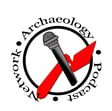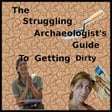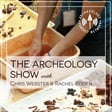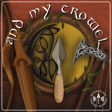
Sexy Sex with Asian Dothrakis - Episode 10
IT’S EPISODE 10 OF THE STRUGGLING ARCHAEOLOGIST’S GUIDE TO GETTING DIRTY- “SEXY SEX WITH ASIAN DOTHRAKIS!”
Given, those of you who share my love of Medieval era earth-like fantasy novels will get more out of this one than others- it’s still a pretty great time. We talk about genome studies revealing how surprisingly horny our ancient ancestors were, which may or may not involve a detailed Game of Thrones analogy. Then I give some advice to the newb considering how to get started with academic conferences. Number 1 priority- ignore ANY and ALL impulses to dress like Indiana Jones. Do NOT do this thing. Repeat after me: I will NOT be that guy… breathe deep, it’s going to be okay.
Oh, and if you didn’t believe me that archaeology conferences are fun- check this out. Yeah, you try eating a pizza the size of a coffee table and not having fun.
Also, all that stuff about drinking was true. I’m not saying that some people are more successful than others at conferences because they drink delicious beers at the end of the day… but it helps.
Okay my nerds, always remember to drink responsibly, tip your waiters, and listen to more of The Struggling Archaeologist Podcast!
McNiven OUT!





